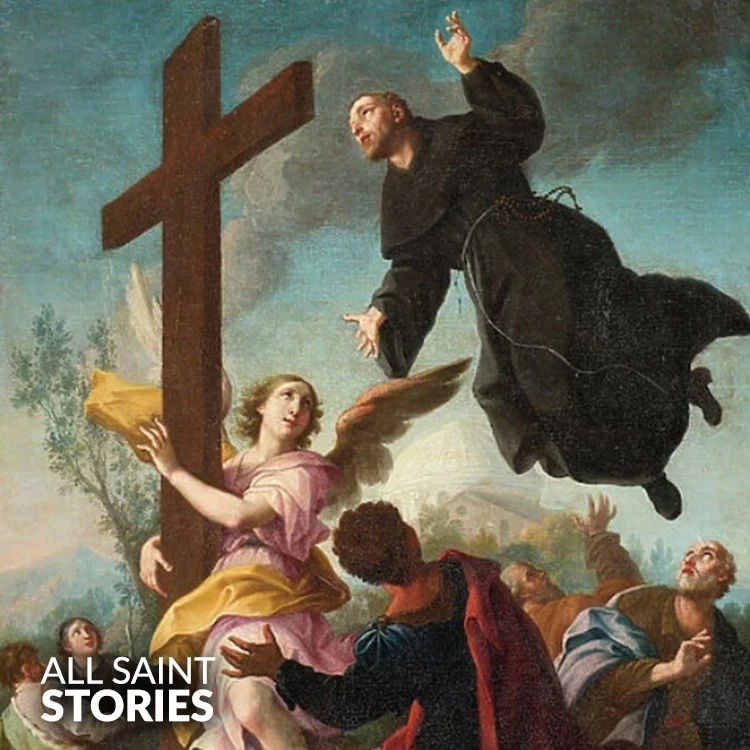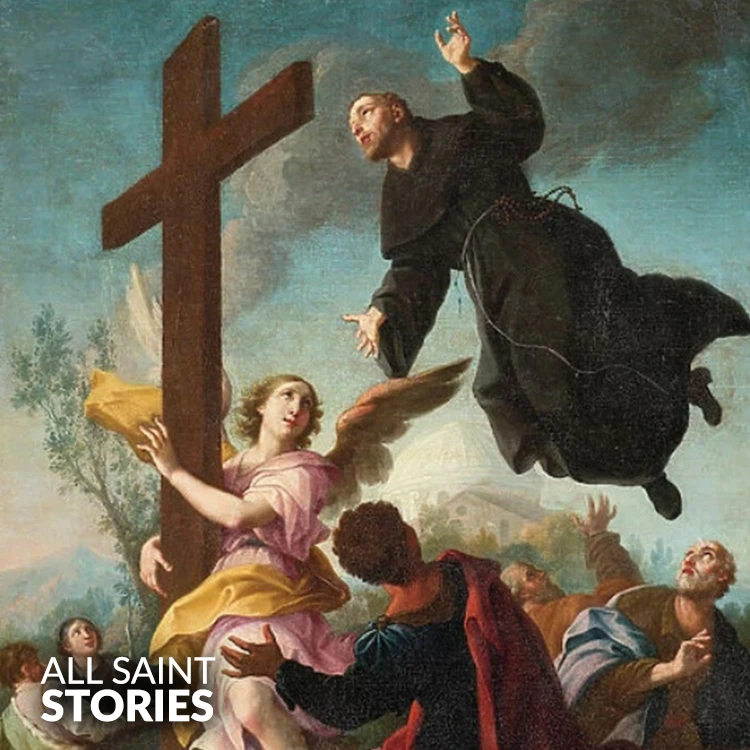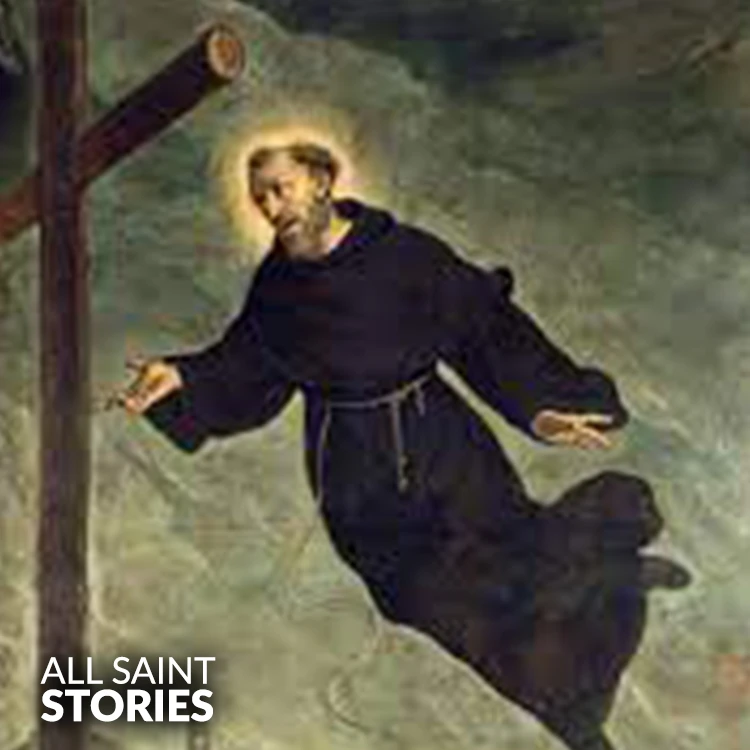Saint Joseph of Cupertino, humble servant of God, pray for us that we may grow in faith, wisdom, and devotion. Help us to trust in God’s plan and to find grace in times of struggle. Intercede for us, especially in our moments of need, and guide us with your loving example. Amen.
ST. JOSEPH CUPERTINO
ST. JOSEPH CUPERTINO

St. Joseph of Cupertino was an Italian Franciscan friar known for his humility, miraculous levitations, and deep spirituality. Though he struggled with academics, his devotion and simplicity led him to the priesthood. He is the patron saint of students and aviators, remembered for his intense mystical experiences and miraculous ability to float in ecstasy during prayer.
St. Joseph of Cupertino was born on June 17, 1603, in the small Italian village of Cupertino in the Kingdom of Naples. His early life was marked by extreme poverty and a lack of basic resources. His father died before he was born, and his mother struggled to support him, often facing ridicule and hardship. Joseph was considered a slow learner and struggled academically, which made his path to priesthood seem nearly impossible.
Despite these difficulties, Joseph exhibited deep devotion to God and a powerful inner spirituality from a young age. He also experienced ecstatic visions and a strong desire for religious life. After being rejected by several orders, he was eventually accepted as a lay brother by the Conventual Franciscans. However, after witnessing his humility, obedience, and mystical experiences, they allowed him to study for the priesthood. Through what many believe to be divine intervention, he passed his exams—often being asked questions on the few topics he actually knew—leading to his ordination in 1628.
Joseph soon gained widespread attention not for his intellect, but for the miraculous occurrences that surrounded him. During Mass and times of prayer, he frequently entered ecstatic states and was seen levitating off the ground. These mystical events were so common that they began to disrupt public gatherings. Though initially welcomed, his fame eventually drew suspicion and envy, leading to multiple investigations by the Church. He was transferred repeatedly and kept in seclusion for much of his life to avoid the distractions and misunderstandings his miracles caused.
Despite his reclusive and humble existence, Joseph remained obedient and joyful, accepting suffering and hardship as divine will. His life was centered entirely on union with God through prayer, poverty, and simplicity. He often went into ecstasy at the mention of Jesus, Mary, or even sacred scripture, and required supervision during liturgies because he might spontaneously levitate or fall into a trance.
Joseph died on September 18, 1663, in Osimo, Italy, where his relics are still venerated. He was beatified in 1753 by Pope Benedict XIV and canonized in 1767 by Pope Clement XIII. Over time, he became known as the patron saint of students, test takers, and those who struggle academically due to the miraculous nature of how he passed his examinations and his own intellectual difficulties.
St. Joseph’s story is one of divine grace transforming human weakness. Rather than worldly success or intellectual brilliance, his sanctity came through humility, trust in God, and extraordinary spiritual gifts. He continues to inspire students, educators, and spiritual seekers worldwide.
Video Not Found
The information on this website is compiled from various trusted sources. While we aim for accuracy, some details may be incomplete or contain discrepancies.
If you notice any errors or have additional information about this saint, please use the form on the left to share your suggestions. Your input helps us improve and maintain reliable content for everyone.
All submissions are reviewed carefully, and your personal details will remain confidential. Thank you for contributing to the accuracy and value of this resource.
Credits & Acknowledgments
- Anudina Visudhar (Malayalam) – Life of Saints for Everyday
by Msgr. Thomas Moothedan, M.A., D.D. - Saint Companions for Each Day
by A. J. M. Mausolfe & J. K. Mausolfe - US Catholic (Faith in Real Life) – Informational articles
- Wikipedia – General reference content and images
- Anastpaul.com – Saint images and reflections
- Pravachaka Sabdam (Malayalam) – Saint-related content and insights
We sincerely thank these authors and platforms for their valuable contributions. If we have unintentionally missed any attribution, please notify us, and we will make the correction promptly.
If you have any suggestion about ST. JOSEPH CUPERTINO
Your suggestion will help improve the information about this saint. Your details will not be disclosed anywhere.
© 2026 Copyright @ www.allsaintstories.com





 English
English
 Italian
Italian
 French
French
 Spanish
Spanish
 Malayalam
Malayalam
 Russian
Russian
 Korean
Korean
 Sinhala
Sinhala
 Japanese
Japanese
 Arabic
Arabic
 Portuguese
Portuguese
 Bantu
Bantu
 Greek
Greek
 German
German
 Dutch
Dutch
 Filipino
Filipino